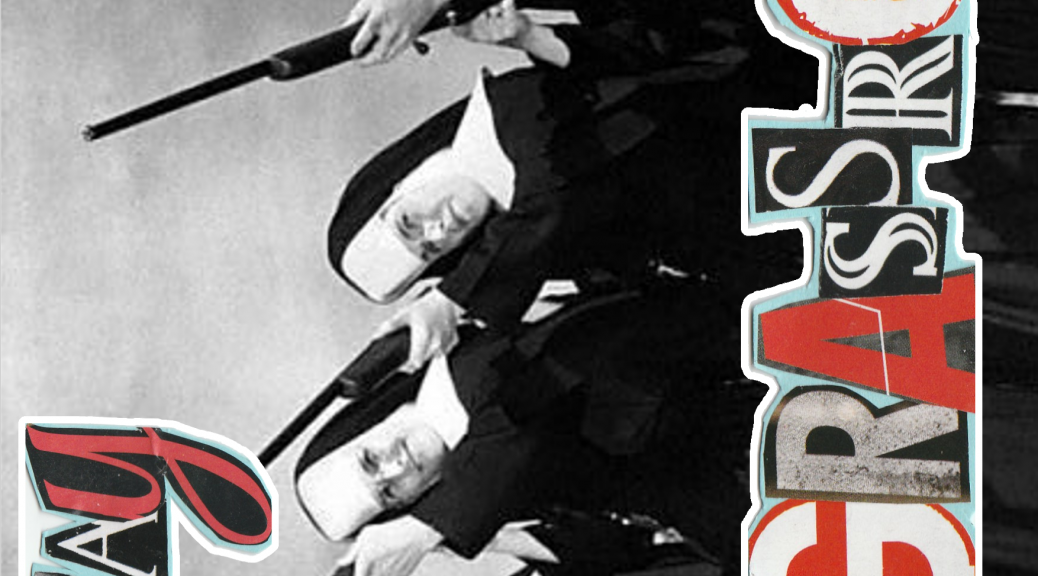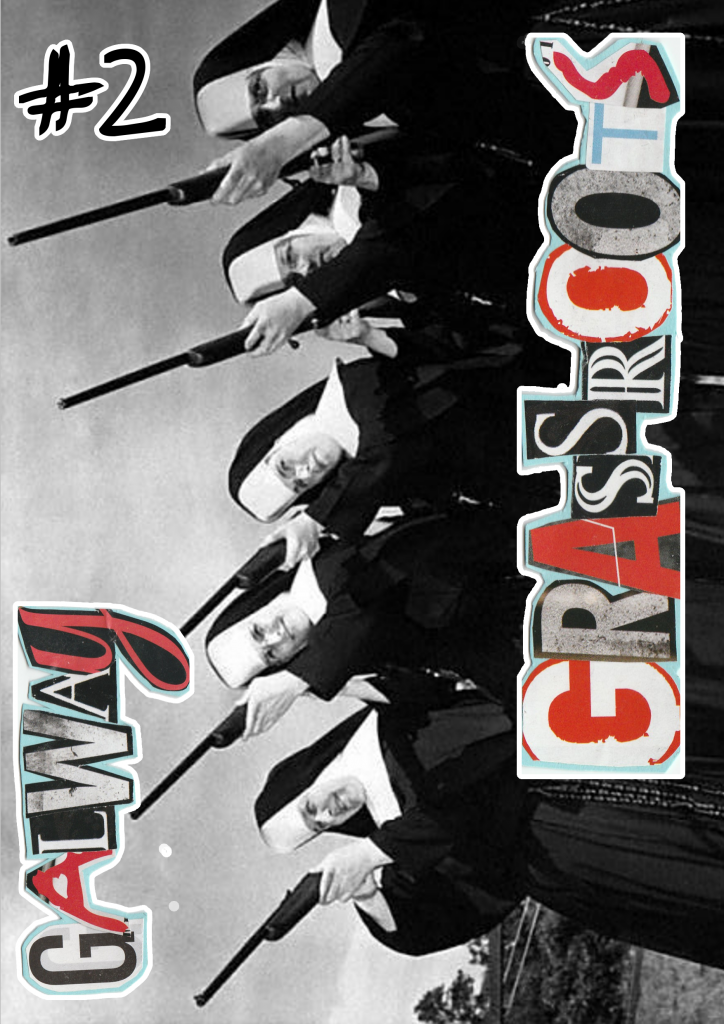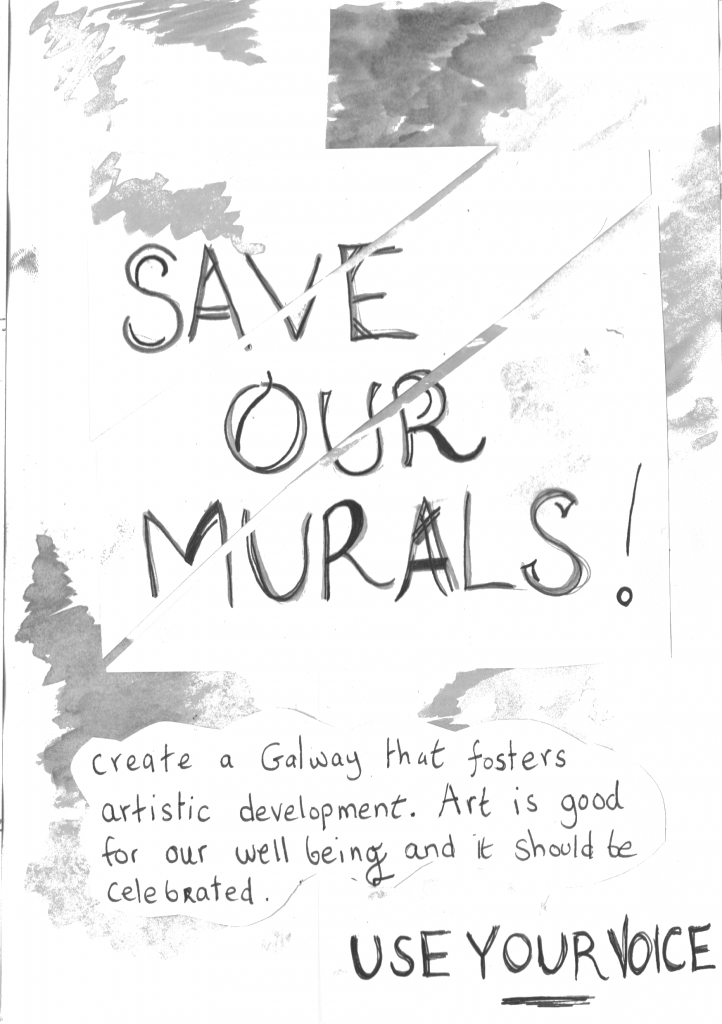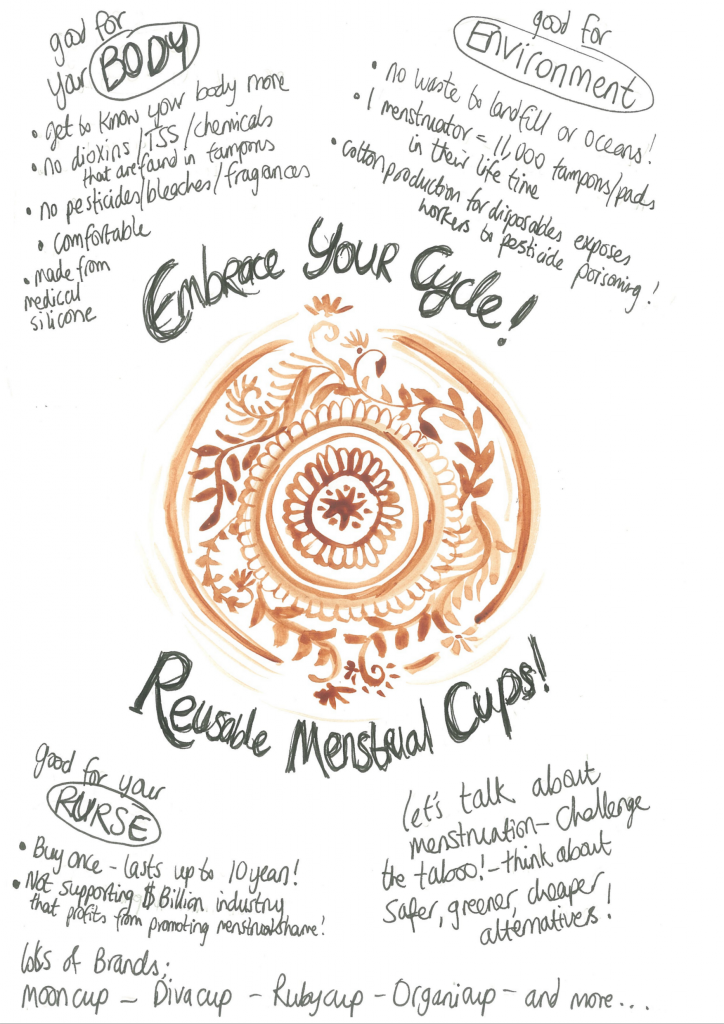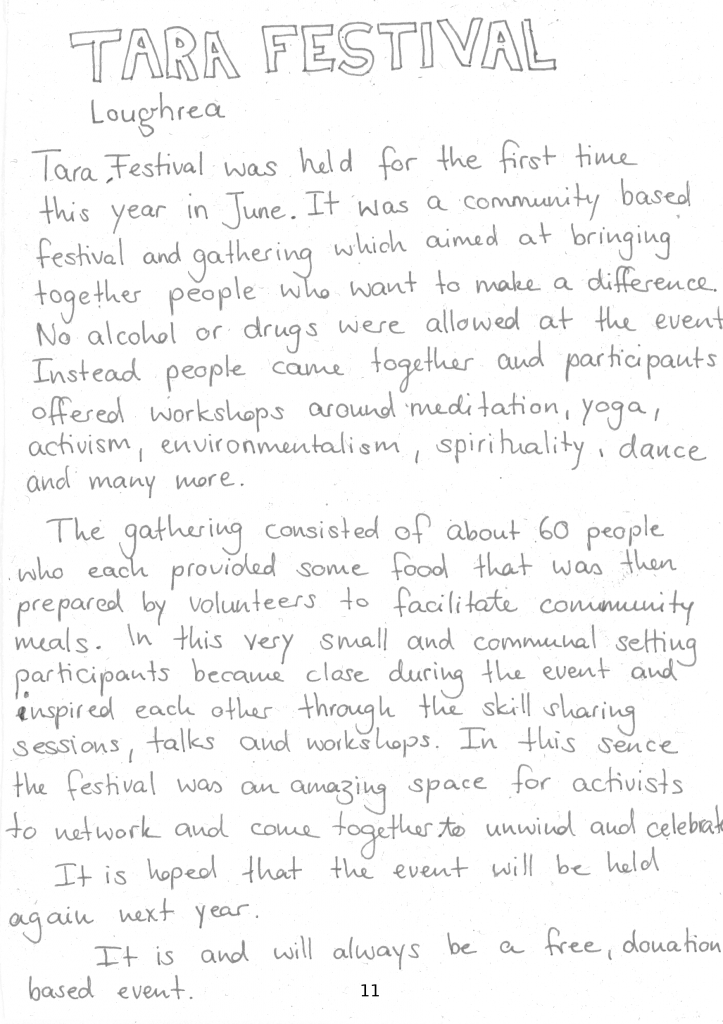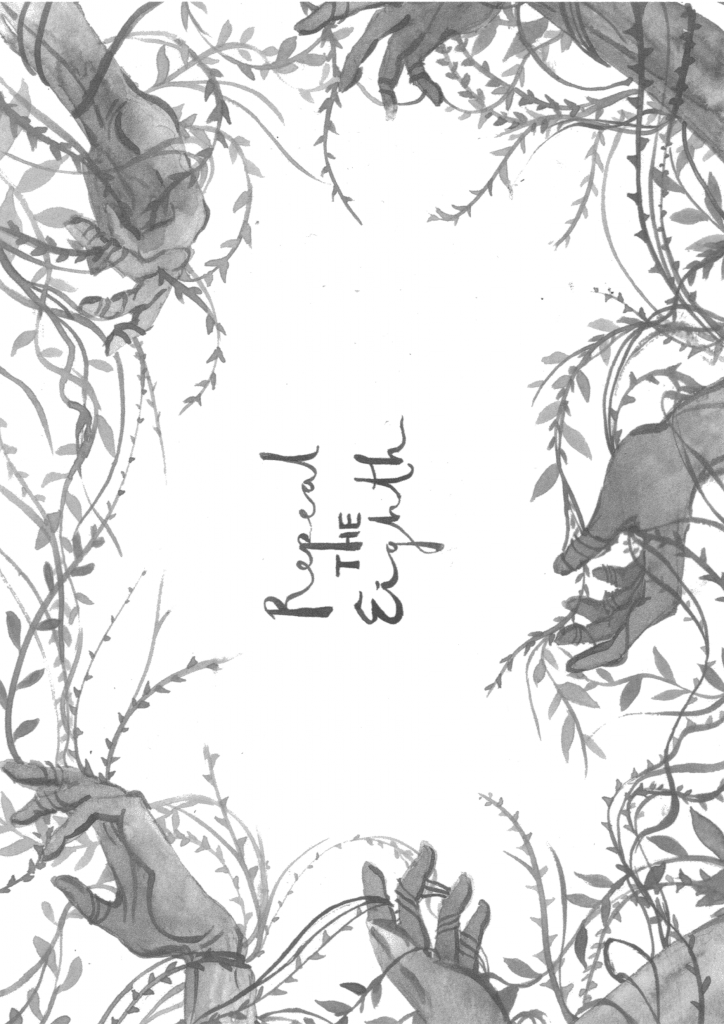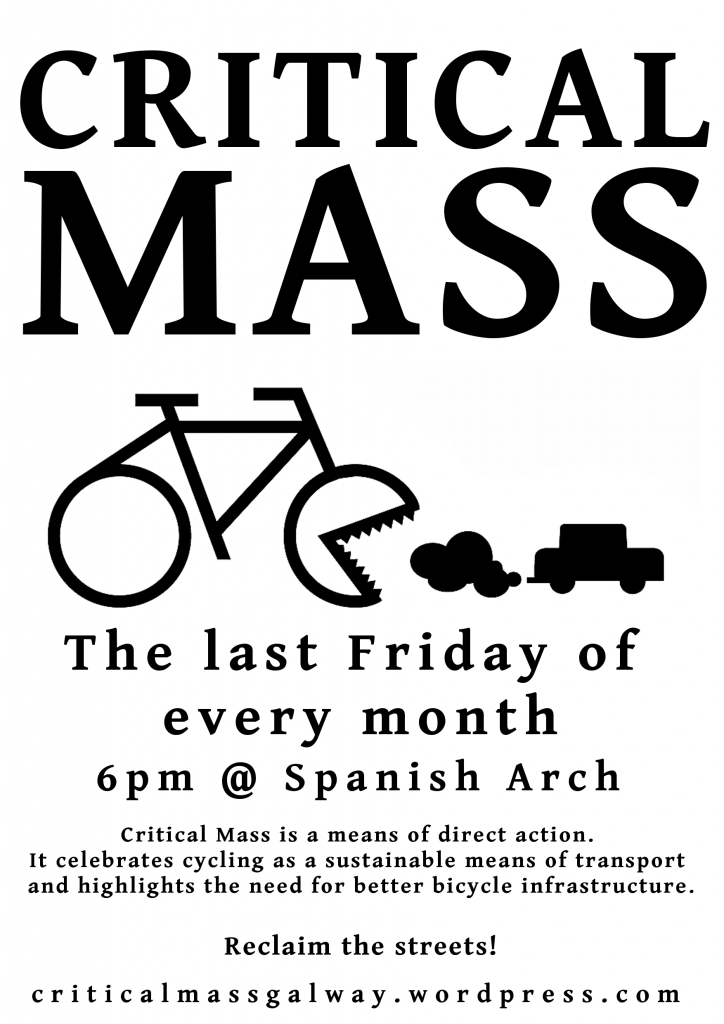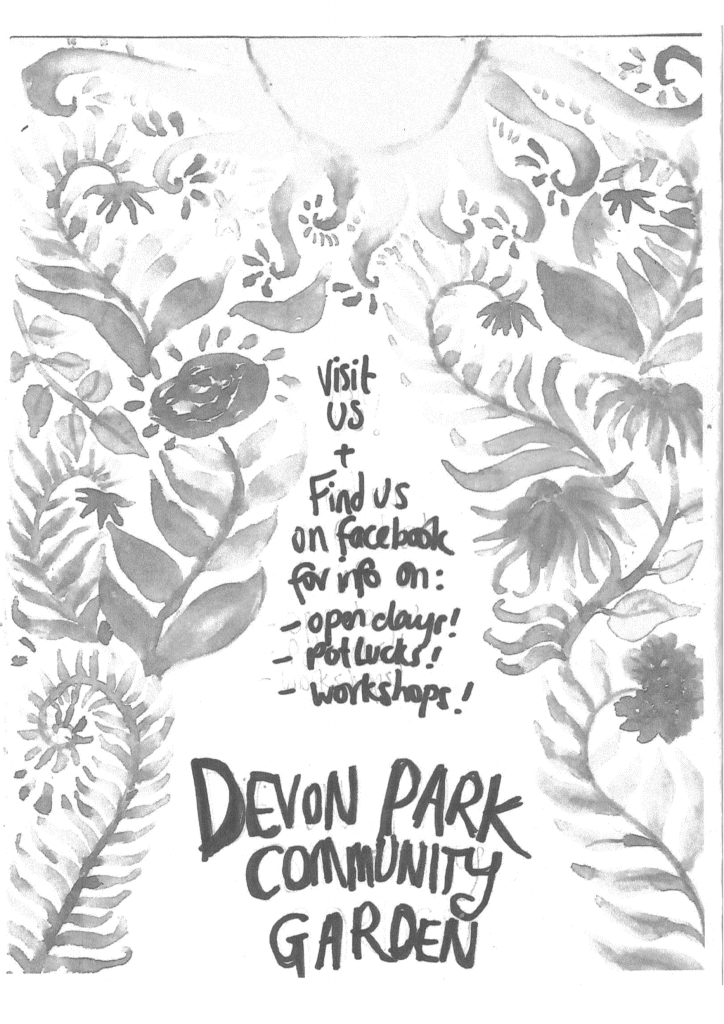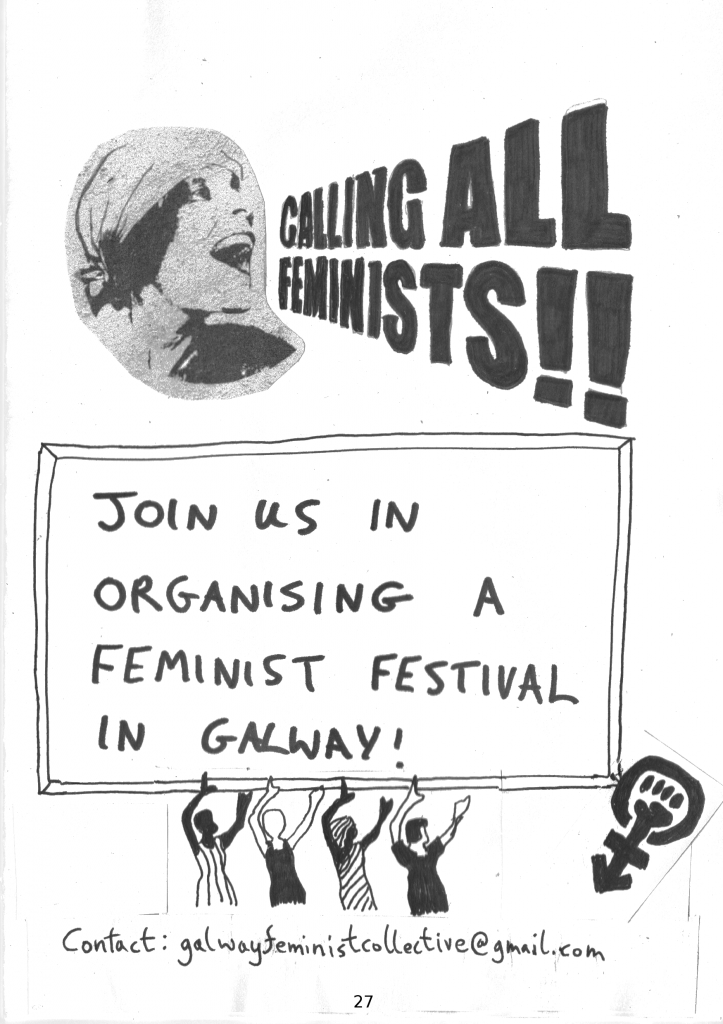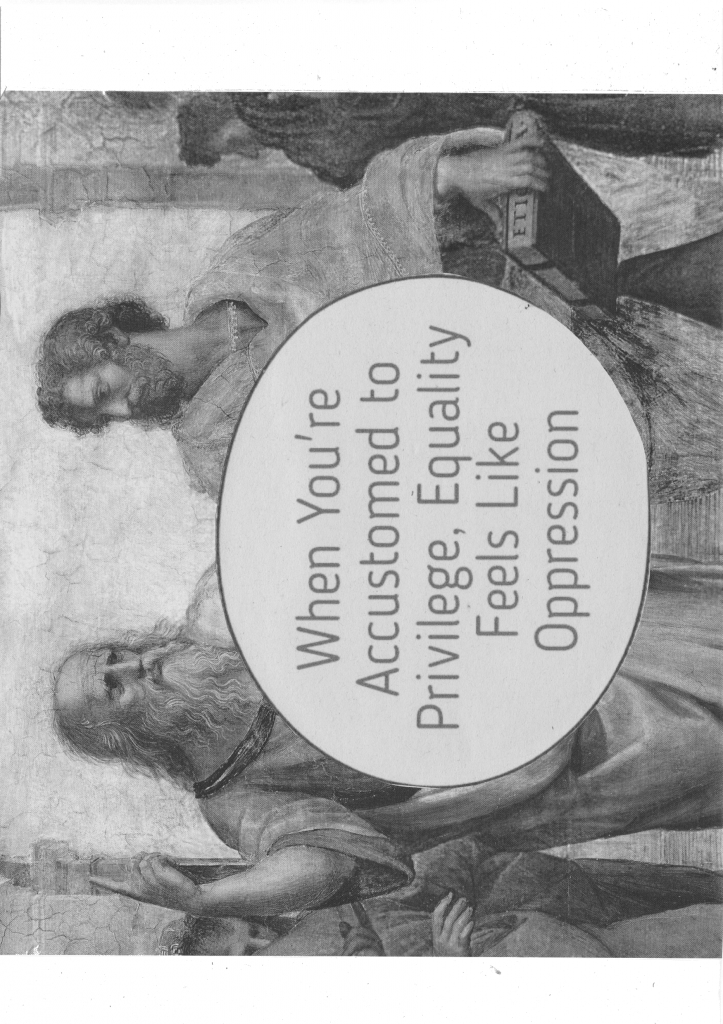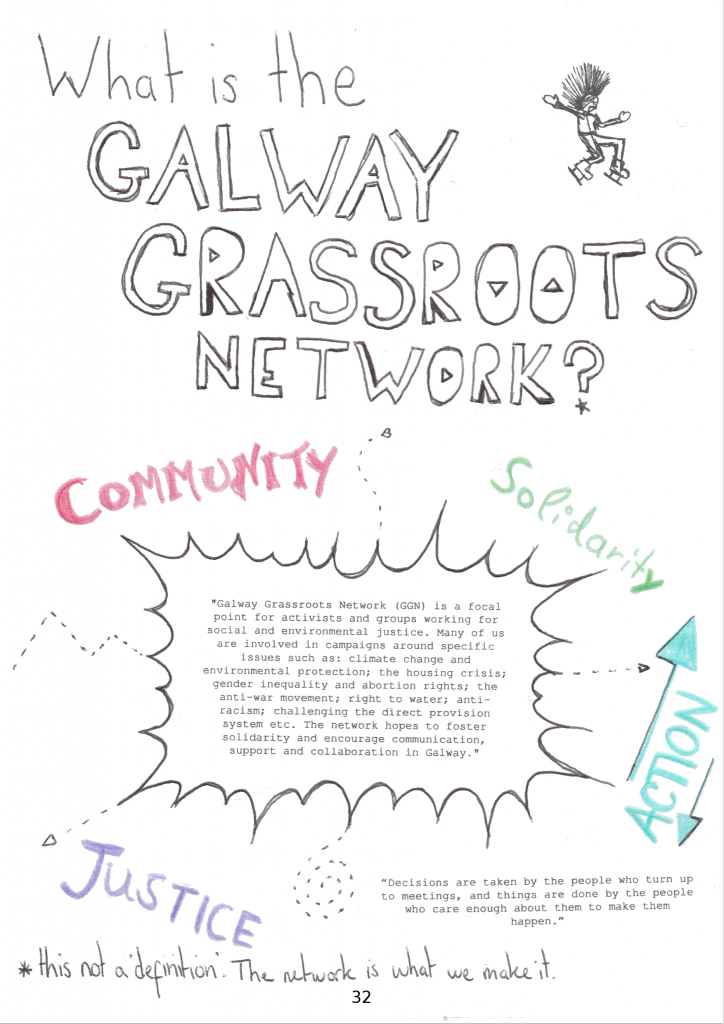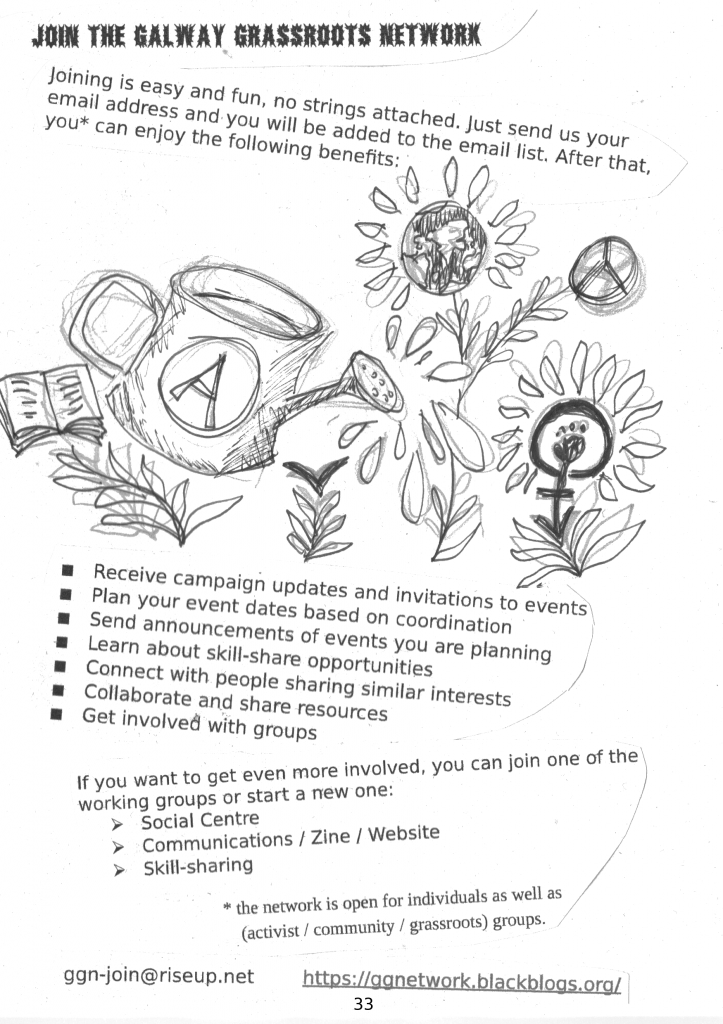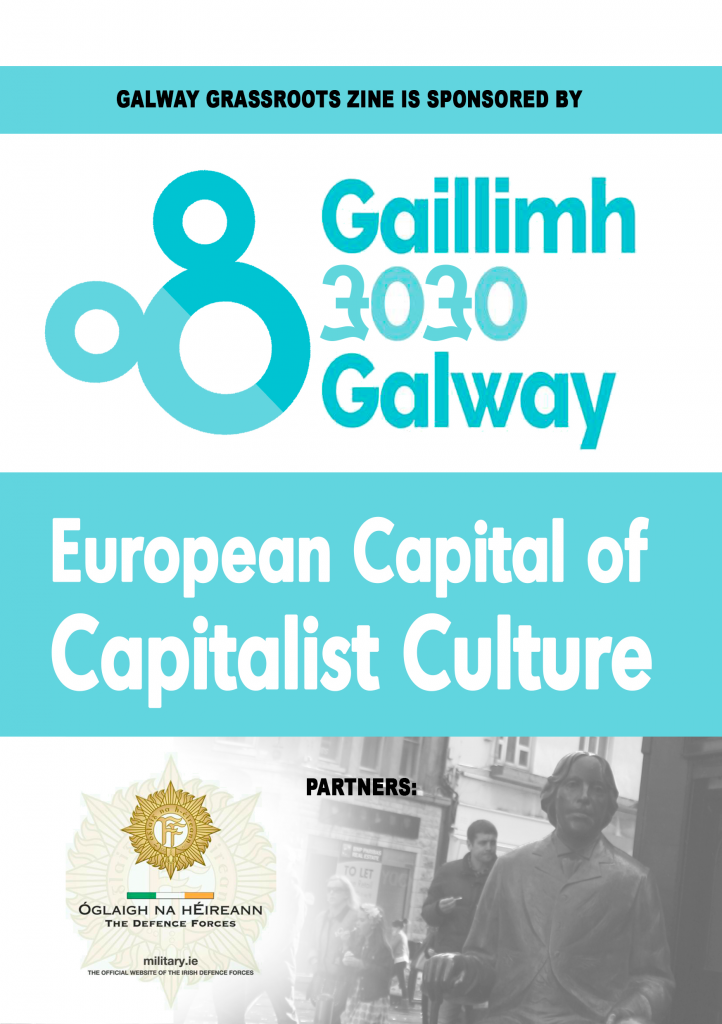Find below the issue #2 of the Galway Grassroots zine.
You can download the zine in these versions
- GGN Zine Issue #2 bw single
- GGN Zine Issue #2 bw double
- GGN Zine Issue #2 bw booklet imposed
- GGN Zine Issue #2 bw booklet imposed flipped (try this if your printer refuses to flip pages correctly)
|
Fracking: the threat continues but community action is winning |
3 |
|
6 |
|
|
7 |
|
|
10 |
|
|
11 |
|
|
12 |
|
|
15 |
|
|
16 |
|
|
19 |
|
|
22 |
|
|
23 |
|
|
We are off to Mars: How will planet earth survive? (Greensod) |
24 |
|
27 |
|
|
28 |
|
|
31 |
|
|
32 |
|
|
33 |
|
|
34 |
|
|
35 |
Fracking: the threat continues but community action is winning
The threat of fracking on the island of Ireland has not gone away, but the campaign has come a long way towards success thanks to the collective action of communities in the licence area.
Fracking is a dangerous form of gas extraction that involves the pumping of thousands of litres of toxic chemicals, sand & water into the ground to create explosions that fracture shale rock & release the pockets of gas trapped inside it.
The fracking fiasco began in Ireland in 2011 when Fianna Fail Minister Conor Lenihan awarded exploratory licences to oil & gas companies in the north-west & county Clare. Lenihan later lost his seat in the 2011 general election but quickly swung through the revolving door & joined the board of Irish-owned fracking company San Leon Energy.
A victory for community action in Belcoo
Since the awarding of the licences, community efforts have prevented any exploration taking place. In July 2013, Tamboran Resources attempted to set up a test drill rig in Belcoo Fermanagh, where they also hold a licence. The company arrived before dawn and set up fencing around a quarry site where they planned to site the rig. Quickly, hundreds of community members arrived at the site at soon a cross-community non-sectarian camp was established at the gates.
Community campaigners highlighted how the company had no Environmental Impact Statement or planning permission. After three weeks of collective action at the site it was clear that the community would not allow the drill on site and Northern Irish minister for the environment, Mark H. Durkin, halted Tamboran’s plans by requiring them to undergo the proper planning process.
Industry
Meanwhile, the Irish government put a “moratorium” on fracking in the south while the Environmental Protection Agency (EPA) carry out a study on the gas drilling process. The EPA awarded the contract for this study to a consortium of companies that included CDM Smith, a US pro-fracking consultancy & Amec Foster Wheeler, another consultancy with links to the major oil and gas companies.
With the study being far from independent, a campaign quickly began to stop this industry-biased research which would be used to make public policy decisions on fracking. Public meetings, petitions, actions at the Dáil and media reports highlighted the study’s biases, embarrassed the EPA and forced Minister Alex White to cancel the study.
Fracking limbo
This victory against industry influence in public policy making has also left us in limbo with fracking. The government put a decision on fracking on the political long-finger until the completion of the study, which has now been cancelled. The companies continue to hold their licences, which means that they could sue the government for loss of profits should fracking be banned. In Northern Ireland, Tamboran are currently appealing Durkin’s decision to require them to have planning permission, claiming compensation of 1.2 billion for loss of profits.
Emerging from this political limbo are a number of initiatives and bills to regulate or ban fracking. The Greens are seeking an all-Ireland response through the North-South Ministerial Council. Sinn Fein have put forward a bill in the Dáil specifically banning fracking in shale rock and regulating all other onshore oil and gas drilling. North Leitrim Fine Gael TD Tony McGloughlan has put forward a private member’s bill which essentially bans all onshore oil and gas drilling. And despite McGloughlan being a government TD (& this author’s lack of faith in representative politics), this bill represents the strongest response to fracking, recognising that to prevent runaway climate change we need to keep fossil fuels in the ground.
The campaign continues
As the Dáil resumes in the autumn the communities facing fracking have a renewed hope that fracking will be banned once and for all.
UPDATE– (01.11.2016)
A bill to ban fracking recieved unanimous support from TDs of all parties in the Dáil on Thursday 27 October 2016. This is a massive victory for the communities across the north-west and county Clare who have been fighting against fracking for over five years.
The bill names and prohibits exploration and extraction from coal seams, shale rock and tight sands. This is a comprehensive list of the specific geological formations in which oil and gas are found in Ireland. By specifically prohibiting drilling in these formations, the bill effectively bans all forms of onshore fossil fuel extraction. This paves the way for the energy transition to renewables which is urgently needed in the face of climate change.
But the we shouldn’t be complacent yet! The bill now has 12 weeks to go to the “committee stage”. We will need to keep the pressure up to ensure this bill gives the strongest possible to our communities, public health water and climate. Stay tuned online through #BackTheBill & LoveLeitrim.org.
We need to talk about Facebook
| For several years we (nadir.org) have provided servers and communication infrastructure for the left. We have done our best to keep the servers safe and have resisted requests for user data by the authorities, using various means.In short: we try to offer a liberating form of communication within the capitalist internet.We have always seen the internet as a resource for our struggles and at the same time recognised it as contested political terrain, and we have acted accordingly. We thought that most on the left saw it the same way. But since more and more people on the left have been “using” Facebook (or Facebook has been using them), we are not so sure any more. Instead, our political work has been seen as lacking and exhausting. Encrypted communication with autonomous servers is not perceived as liberating but rather as annoying.DisneylandWe just hadn’t realised that, after all the stress out on the streets and all those lengthy group discussions, many activists seem to have this desire to prattle at length on Facebook about everything and with everyone. We hadn’t realised that, even for the left, Facebook is the sweetest of all temptations. That the left along with everyone else enjoys following the subtle flow of exploitation where it doesn’t seem to hurt and, for once, not having to resist. Many people suffer from a bad conscience. While this may lead them to anticipate the fatal consequences of Facebook, it does not seem to translate into action.Is it really ignorance?Just to give a short outline of the problem. By using Facebook, activists do not just make their own communication, their opinion, their ‘likes’, etc. transparent and available for processing. Instead – and we consider this far more important – they expose structures and individuals who themselves have little or nothing to do with Facebook. Facebook’s capability to search the net for relationships, similarities etc. is difficult to comprehend for lay people. The chatter on Facebook reproduces political structures for the authorities and for companies. These can be searched, sorted and aggregated not just in order to obtain precise statements regarding social relations, key people, etc., but also in order to make predictions, from which regularities can be deduced. Next to mobile phones, Facebook is the most subtle, cheapest and best surveillance technology available.Facebook users as unwitting informants?We have always thought that the left wants something else: to continue our struggles on the internet and to use the internet for our political struggles. This is what it’s about for us – even today. That is why we see Facebook users as a real danger for our struggles. In particular, activists who publish important information on Facebook (often without knowing what they are doing), which is increasingly used by law enforcement agencies. We could almost go as far as accusing those activists of collaborating. But we’re not quite there yet. We still have hope that people will realise that Facebook is a political enemy and that those who use Facebook make it more and more powerful. Activist Facebook users feed the machine and thereby reveal our structures – without any need, without any court orders, without any pressure.
Our Point of View We are aware that we’re talking from ‘above’. For us, having worked for years – and sometimes have earned a living – with the net and with computers, system administration, programming, cryptography and lots more, Facebook comes as something like a natural enemy. And since we also consider ourselves to be part of the left, this adds to the analysis of the political economy of Facebook, where ‘users’ are turned into a product, that is sold, and become consumers at the same time. The jargon for this is ‘demand generation’. We realise that not everyone deals as enthusiastically with the internet as we do. But for activists to allow this Trojan horse called Facebook to be part of their everyday lives is a sign of ignorance on a critical level. We urge everyone: close your Facebook accounts! You are putting others in danger! Act against this data monster! Also: Leave Yahoo! mail and co. Down with Google! Against data retention! For net neutrality! Freedom for Bradley Manning! Long live decentralisation! Fight capitalism! Also – and especially – on the internet! Against exploitation and oppression! Also – and especially – on the internet! Get on your comrades’ nerves. Point out to them that by feeding Facebook they have chosen the wrong side! Original text by nadir.org, october 2012 Check out the providers of alternative, open-source technology and services presented around the contribution and more online: https://prism-break.org/en/all/ Also check out this video: https://www.youtube.com/watch?v=c4EEa0HAqzQ |
The 8th Amendment: Why it needs to go! (Galway Pro-Choice)
Activists from Doctors for Choice, Parents for Choice, Abortion Rights Campaign, and film-maker Hilary Dully addressed a packed Galway Pro-Choice meeting on ‘The Eighth Amendment: Why It Needs to Go’ held last Saturday 25th June in Galway city. 80 people attended and participated in the informational and mobilising event, surpassing the campaign group’s expectations and showing a real demand for change to Ireland’s constitution in this regard.
Dr. Maeve Mahon-Ferriter, a Galway native, now based in Kerry after practicing in New York for 35 years, spoke of her shock when coming back to Ireland to discover that, after the divorce referendum and decriminalisation of homosexuality, Ireland was still living in the dark ages with regards to women’s reproductive rights. She added that the law means that she is unable to treat her patients according to best medical practice.
Jenni Owen-Thomas, of Parents for Choice, gave an emotive, powerful speech, describing her experience of maternity services in Ireland, where she found out that the existence of the Eighth Amendment meant that, as a pregnant woman, she lost her right to informed consent to medical procedures. Jenni explained that pregnant women are explicitly excluded from the National Consent Policy because of the Eighth Amendment.
Hilary Dully, academic and film-maker, spoke on the dichotomous and sensationalist language used in the Irish abortion debate, (“abortion on demand”, “open the floodgates”) and national broadcasters’ harmful insistence on “balance”. She noted that this should be challenged in order to allow for the real, human stories to be given the space/opportunity to be heard.
The second half of the meeting involved breaking into small groups for discussion, reflection and coming up with dynamic strategies to a) push for a referendum to repeal the Eighth Amendment and b) win the referendum.
Ranging from exposing misinformation and debunking myths, sharing personal stories, calling out the State on its hypocrisy, contacting our TDs and councillors, utilising international human rights bodies’, highlighting how the Eighth Amendment affects our health, and generally changing the nature of the debate; it was a great and inspiring opportunity for people to work together.
Finally, speakers from the room shared their thoughts, concerns and experiences, including a teacher who lamented the fact that, while Irish schools cannot discriminate on the basis of sexual orientation, she is unable to publicly voice her views on the issue, or, indeed, be publicly seen at a pro-choice event. Another woman described how she felt like a “hostage” when accessing Irish maternity services.
While the government discusses issues such as a free-vote for Independents and the constitutionality of the Fatal Foetal Abnormalities Bill, and groups such as Youth Defense spread graphic, insensitive images via their “roadshow” – it is clear that people are still being denied their human rights and that there is tangible demand for a repeal of the Eighth Amendment, in order to finally bring in free, safe, legal access to abortion in Ireland.
A GUERILLA GUIDE TO AVOIDING BURNOUT
Anyone working for a more socially, environmentally and economically just world has probably felt the extreme ups and downs on the road to burnout. So without falling into a cycle of ‘full on intensity – burnout – time off – and repeat’ how can we be effective, radical and sustainable change-makers?
We all know the warning signs. It feels like stuff’s about to kick off, there’s an exciting campaign, action or event in the works and you really want to get stuck in! Unfortunately, only a handful of people are on board… but you have big, amazing ideas! The likelihood is, if committed people put their minds to it, they’ll make stuff happen, no matter how exhausted they get in the process. The highs immediately after finishing a project or having a win are regularly followed by a quick, sharp comedown combined with the feeling that you need to hibernate for…ever? On the other hand, burnout can also be a more subtle equation of ongoing workload & destructive attitudes and behaviours, regardless of whether stuff’s kicking off or not.
Currently, the UK is experiencing vicious welfare reforms, increasing unemployment, more homelessness, higher energy bills and further environmentally damaging infrastructure. The situation is dire and far from the anarchic utopia I, and I’m sure others, sometimes wish for. But under the surface, and sometimes vociferously bubbling over, people are getting together to talk, plot, organise, resist and create alternatives. Though when things heat up and it seems there is more to do than there are hours in the day, how can we work sustainably and avoid
burn out, both individually and as a group?
Support each other
Take time to hear how others in your groups are doing. While this might be met with “but we don’t have time to discuss feelings, we have things to do!” it really helps to know how your co-conspirators are doing. What’s going on with them in the rest of their lives that may affect the way they are in the group? And how are they feeling about the direction of the campaign and in general? If the size of the task you’ve set yourselves seems overwhelming and insurmountable, or your group’s had a set-back, taken a hit, or things just aren’t going as well
as you’d hoped, it can help to share these feelings, hear that others are feeling the same way and find ways to support each other. Doing things socially with others in your group can also be a good way to avoid isolation.
Be realistic – in planning and what you take on
Take the time to plan, try to do it as far in advance as possible and consider whether ideas are truly realistic with the timescale and organisers you have. Are you really going to be able to overthrow capitalism by the end of the year? When you know what organisers’ individual time limits and availability are from the start to finish of
the project, you can decide whether to scale it back, get more people involved or keep it as is.
Identify group members’ skills, knowledge and ways of working
Getting a sense of the skills, strengths, weaknesses and gaps in your group can help the group to be aware of it’s limitations and identify what’s needed. It can feel quite burdensome if there’s only one person who knows how to do a specific task. Have a skill-share, or build skill-sharing into roles and action points, so the job could be shared
or rotated more. Learning new skills can also be an empowering way for people to get involved in a group.
Know your own limits
Trust your instincts and know your capacity. When there’s an action point hanging in the silence waiting to be taken on, the person who takes it is often the one who finds the silence most uncomfortable. But it’s okay for your response to be ‘no’ instead of ‘it’s okay, I can just get 5 hours sleep instead of 6’! And as a group, it will make it easier for members to be realistic with their own time if they know their choices will be respected, supported and not judged by others. If someone can’t take on a crucial action point maybe it’s time to re-evaluate the scale of the project and/or make a concerted effort to recruit more organisers.
Do and learn; do and learn; etc.
Making the same mistakes can be really demoralising and de-motivating – feelings definitely associated with burnout. The best way to make sure this doesn’t happen is to learn from your mistakes. Putting time into debriefing events and actions to identify what worked well and what didn’t that you’d change the next time (and then using this info in future plans) can be really useful for groups to stay energised and inspired to keep up the fight.
Do what you love
Don’t underestimate the importance of taking personal motivations into account when thinking about your group’s strategy. No matter how much someone ‘believes in the cause’ it’s way more likely that they’ll stick around if the stuff they get to do is the stuff they are passionate about. Alternatively, they may stick it out but be bitter, bored and indifferent, which isn’t great for personal wellbeing or sustainability! At times, we obviously all have to do things we don’t like doing, but make sure those aren’t the only things someone does! Doing what you love also
applies to taking time for yourself and having a life outside of activism!
This article was written by Jake from the London Roots Collective and first appeared in a cool little zine called Nachhaltiger Aktivismus a zine about sustainable activism
Find out about London Roots Collective here: http://london-roots.org.uk/
Get the full zine here: http://cre-act.net/sustainable-activism/sustainable-activism/
Pro Cathedral! – Díobháil calls for Repeal the 8th and Free, Safe, Legal Abortion
In the early hours of Thursday morning, feminist pro-choice activists Díobháil (Bíonn Díobháil a dhéanamh againn: We make mischief) struck again and dropped a banner from Galway Cathedral stating “Repeal the 8th – Free, Safe, Legal” demanding access to abortion. For too long the Church and the State have controlled our bodies and our choices. It is time to finally end the unholy alliance of Church and State. While Díobháil respects peoples’ personal religious beliefs, these should not be imposed on others, and vast majority of people in Ireland agree. Let us not forget, St. Brigid was our first abortionist, and this is why we demand “Take your rosaries off our ovaries!”
Díobháil, along with the majority of the population in Ireland, are angered that the Irish state continues to fail us every single day when it does not fulfil its human rights obligations by (finally) introducing free, safe and legal access to abortion. How many more women must suffer and die before the Irish state takes real action?
We are treated like criminals facing a 14 year prison sentence for accessing abortion. We stand in solidarity with our comrades in Northern Ireland facing life imprisonment for accessing abortion and call for the 1967 Act to be extended.
Criminalising abortion does not stop abortions from happening. Abortions happen every day, from pills ordered online to people travelling. Today at least ten women will travel to access healthcare, which should be available in Ireland. We must put an end to this hypocrisy.
Díobháil rejects state control over our bodies. The State’s oppressive laws mean people have no control over their bodies once they become pregnant. The 8th Amendment not only impacts access to abortion but also our maternity services. We stand with those most marginalised by this lack of access including women living in poverty, migrant women, asylum seekers and trans and non-binary folx.
In solidarity with activists, concerned individuals and groups across the island of Ireland, Díobháil wish to spread the pro-choice message near and far. We stand with others reclaiming public space like the Project Arts Centre, the Irish Council for Civil Liberties, UNITE in Dublin, and countless street artists. Díobháil welcomes the increasing numbers of people who are demanding a referendum to repeal the 8th Amendment.
Repealing the 8th Amendment is the first step towards liberalising our abortion laws. The so-called Citizen’s Assembly which will comprise of “appropriate” women, and otherwise known as the proverbial can being kicked down the road, is not good enough and we cannot wait.
Díobháil encourage women in Ireland who are in need of abortion to access www.womenhelp.org, www.needabortionireland.org and www.abortionsupportnetwork.org.uk, where they will receive non-judgemental, confidential and safe support.
The movement for reproductive rights is growing, here and across the globe. Díobháil is calling on the people of Galway and the island of Ireland to no longer be the silent majority. We need to speak out, we need to be part of the pro choice movement. Individuals and groups who wish to join the struggle to realise the right to bodily integrity and personal autonomy can join relevant regional groups such as Galway Pro-Choice, and the national group Abortion Rights Campaign.
We are not vessels
We are not incubators
We will not be silenced!
Considerate (Non-) Smoking
OK, we all know that smoking is harmful for ourselves and for other’s around us, that it’s addictive, etc. bla bla bla. That’s not what this is about.
While laws just go for NO SMOKING signs everywhere – what could an activist approach to negotiating spaces be that would help everyone feel comfortable, heard, and accepted? How can smokers, non-smokers and all in between support each other in their aspirations, needs, and difficulties?
My suggestion is: whether or not it is legal – try to be considerate of those people around you:
just ask!
Negotiate space/time if it is impossible to go somewhere else. Check the direction of the wind and position yourself accordingly. You’ll be surprised, often enough people do not mind when asked!
Workshop: We are off to Mars – How will Planet Earth Survive?
Green Sod Ireland held a workshop in NUI Galway in April which aimed at answering the above question. The workshop was an interactive philosophical journey and explored deep ecology through a number of activities.
Green Sod Ireland is a grassroots conservation organisation based in Galway. It was formed in 2006 inspired by the environmentalist Aldo Leopold and the deep ecologist philosopher Arne Naess with the vision to re-establish Ireland as a country where ecosystems are thriving and flourishing.
In this sense, Green Sod is a critical response to our growing alienation and separation from the natural world. It establishes WildAcres across Ireland to create safe habitats, vital for biodiversity, delivers ecological education to re-connect people of all ages to the natural community, and conserves land for its own sake, for the sake of the total Earth community living on the land. long those lines, the workshop was aimed at encouraging participants to question deeply our bond with nature, to recognise the interconnectedness and interdependence of all living beings on this planet, and to question what we can do to establish deep harmony with nature. Beginning the workshop through a meditative activity we re-connected to a natural setting in our minds and learned how a tree, a river, or a bee can slow us down and how much love we feel for nature. Once the bond with nature was explored in this way, we went on to explore the interconnectedness of all of the living community on earth through an activity termed ‘The Web of Life’. When conducting this activity, all participants stand in a circle and everyone holds a little card with an image of a living being from an ecosystem. A ball of wool is used by the person who starts. This person calls out what living being they represent. Everyone else looks at what they represent and see how they might be connected to the living being the first person holds. Once a connection or dependence between the first living being and another one is established, the ball of wool is thrown to the connected living being, while the first person holds on to the end of the wool. This is done until everyone is connected in a web like form and the message emerges that everyone in the earth community is interconnected and interdependent. This activity has a strong learning factor and shows clearly and in a playful way how necessary it is to respect and value even the smallest microorganism.
Finally, towards the end of the workshop, we arrived at our guiding question: ‘if we are off to Mars; how will planet Earth survive?’ Everyone was encouraged to think about what this question could mean and how will the planet survive. The outcome of answering this question was interesting and diverse. Let me list some of the ideas here:
-
‘If all humans leave, ecosystems would be able to thrive and flourish without interference.’
-
‘But what about Mars? Will Mars suffer from human interference and exploitation then?’
-
‘Well, if the rich capitalists leave earth, we would no longer have to watch how planet earth is being destroyed and we could live in harmony with all living beings’
-
‘If humans went to Mars, maybe we could start over and establish ecosystems and a strong bond with the natural environment on Mars, while planet earth could recover from the suffering of the past.’
-
… and some room for you to think about this now …
I will leave it here but Green Sod will be holding more workshops, open meetings, and eco-philosophical discussions in the near future. Keep an eye on our website and Facebook page or get in touch.
Website: www.greensodireland.ie
Facebook: https://www.facebook.com/Green-Sod-Ireland-266324045991/?fref=ts
Phone: 086-4042047
Email: greensodireland@gmail.com
Calling all feminists!! Join us in organising a feminist festival in Galway. Contact: galwayfeministcollective@gmail.com
Fossil Free NUIG
All the way back in 2014, I came to NUI Galway to research my PhD on Climate Change and Agriculture. However, myself, and my fellow students wanted to do more than just research. So, we decided to found the Climate Change, Agriculture and Food Security (CCAFS) Society and NUI Galway.
Since then we have been working hard to make a difference on, and off, campus. We have hosted conferences, workshops, worked with NGOs and other societies, basically anything we could do to raise awareness on campus.
This year we decided to investigate whether our university supported fossil fuel companies.
Guess what?
They did.
In November of 2015 we submitted a Freedom of Information (FOI) request to the university and it turned out that
NUI Galway has at least 3.4 million euro invested in fossil fuel companies globally.
These companies include Gazprom, Statoil, Sinopec and many others.
The CCAFS society boldly set about righting this wrong, and approached the university about divesting itself of these shares, and reinvesting their monies into better performing, more sustainable technologies.
Guess what?
They didn’t listen.
So, we decided to engage the Students Union asking them to support us, and support us they did.
Again, with the backing of the SU, we approached the University.
Guess what?
They stopped speaking to us…completely.
In light of all this, we have taken a new approach, we have, since then, been rallying the support of the students on campus with a petition that currently stands at 883 signatures, We have written an open letter that have been signed by people such as Sen. Alice Mary Higgins.
But we still can’t get the university to talk to us, or to even reply to an email. In short, we need more help.
We know, and the university knows, that in order to avoid catastrophic climate change, 80% of fossil fuel reserves need to stay in the ground.
NUI Galway proclaims itself as a leader in sustainability research. It is time that our university lives up to its commitment to sustainability and ceases its financial support of fossil fuel companies. We cannot, on one hand, be a leader in climate change mitigation research, and on the other, profit from the climate chaos caused by fossil fuel companies. It makes little sense morally, or financially.
The fact that the case we present is a compelling one, is the very reason the university has chosen to ignore its own students. If they talk to us they know they will have to change.
Help us have the conversation. If you are interest in the fossil free movement, or you simply would like to sign the petition, visit our page and please contact us with your questions.
No Place Like Home: An Asylum Seeker’s Room
As a part of Culture Night, GARN and MASI (Movement of Asylum Seekers in Ireland) asked people to experience the restricted space of a room in direct provision.
The dimensions of a room in a direct provision centre were mapped out on the ground in Eyre Square to give some idea as to the space in which people are forced to live while awaiting a decision on their asylum application.
Photographs were displayed from the Asylum Archive (www.asylumarchive.com)
Statements from people in direct provision were presented for people to read and a stall was close by for further information.
“All people – all races – should be treated equally, fairly.
But we are not.”
“It’s a system designed to separate people.”
“I feel I can’t tell my friends where I live. Even if they come over,
they’re not allowed to come to my room. I’ve nowhere to play …”
“I just did my Junior Certificate. It was really hard for me because I wasn’t able to study properly – because my brothers are fighting and disturbing me all the time.”
“Sometimes I feel like I want to kill myself.
I feel like I’m not a human being.
I have no home.”
Try new activist tactics
Sometimes, we may not be able to achieve what we want with the tactics we chose. This little collection may get your creative mind going to choose the right tactic that fits your strategy and hits your target!
Refusal of assembly to disperse – Sit down – Bodily interjections – Bodily obstruction – Trespass – Airborne invasion – Occupations – Inviting arrest/imprisonment – Sit-in – Stand-in – Ride-in – Pray-in – Return of waste products – Heckling – Guerrilla theatre – Protest strip – Graffiti – Subvertising – Refusal to collaborate – Declining government awards/appointments – Boycott of elections – Hunger strike – Ghosting – Publicising individual ‘s activities – Social boycott – Ostracism – Denial of social/sexual relations – Excommunication – Boycott of meetings, events or lectures – Group silence – Walk-out – Picketing – Breaking social taboo – Harbouring fugitives – Sanctuary – People’s public hearings and courts – Consumers’ boycott – Withholding of rent – Refusal to pay tax – Refusal to pay debts or charges – Withdrawal of bank deposits – Blacking of goods by suppliers – Blacking of raw materials by workers – Demonstration – strike – Go-slow – Work-to-rule – Bumper strike – Wildcat or lightning strike – Lock-up or stay-in strike – Reverse strike – Personal strike – General strike – Overloading facilities or services – Overloading administrative systems – Stalling by customers – Breaking bad laws on principle – Publishing secret material – Disclosing secret identities – Tracking – Forgery of letters – Breaking official blockades – Refusal to recognise appointed officials – Non-co-operation with police – Removal of street signs, door numbers – Closure of roads – Infiltration of institutions with spies – Electronic picketing – Spoiling or contamination of goods – Monkey-wrenching – Liberating animals – Failure to pass on information – Deliberate inefficiency – Industrial sabotage – Non-retaliation – Entryism – Alternative radio/newspapers – Alternative school – Selective patronage – Alternative economies – Selective refusal of entry – Alternative community with independent sovereign government – …
Also: check out Beautiful Rising (www.beautifulrising.org), a collection of activist tools from the global south initiated by Beautiful Trouble (http://beautifultrouble.org).
CALL FOR CONTRIBUTIONS
Hey wild ones! Send us your true stories, heartfelt letters, outrageous rants, extreme artworks and sublime poetry to ignite change, inspire action and touch the rebel in our hearts. Theoretical analysis or strategy idea, introductions to your group, news and campaign updates, or political analysis are also welcome! 🙂
Theme issue #3: Imagining a utopian future, creating the world we want.
For the next issue we are calling on activists to articulate their visions of the future. What would a ‘win’ look like in your area of activism? i.e write a fiction piece on living in an environment of full bodily autonomy. Try unlocking your imaginations from the prison-house of the possible and allow yourself to imagine the world you desire.
Get creative with your contributions! We want the zine to be as engaging and accessible as possible so lets use images, design and words to communicate and share our messages. If you would rather send a piece made purely from text please send through a brief for design as we may insert/produce artworks ourself. Keep in mind that it should be a maximum of three A5 pages long in *.pdf file format and that it will be printed in black and white.
The next issue will be printed when we have enough contributions.
Please send all contributions to
ggn-zine@riseup.net www.ggnetwork.blackblogs.org
THANk YOU!
You are holding the 2nd issue of the Galway Grassroots Zine in your hands! This wouldn’t be possible without the great contributions we received from fellow activists and artists. A big, grateful hug of thanks to all of you! And thanks to those unknown artists whose artwork we borrowed.

